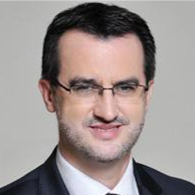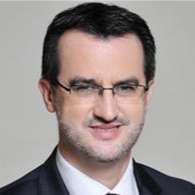
Building Community-Based Mental Health Services After War: Lessons from the Kosovo Reform (1999–2004)
Building Community-Based Mental Health Services After War: Lessons from the Kosovo Reform (1999–2004)
Pricing
Information
Recorded
-
-
Learning Objectives
Participants will be able to:
-
Describe the key components and theoretical underpinnings of Kosovo’s 1999–2004 community-based mental-health reform.
-
Identify strategies for building collaborative leadership between local stakeholders and international partners in post-conflict settings
-
Analyze quantitative and qualitative outcomes-including reductions in hospitalizations and stigma-that demonstrate the reform’s effectiveness.
-
Evaluate how lessons from Kosovo’s experience can inform mental-health policy and service design in other low-resource or post-disaster environments.
Educational Goal
Description
This session examines the systemic mental-health reform undertaken in Kosovo in the immediate aftermath of the 1998–1999 conflict. Faced with the near-total collapse of the neuropsychiatric system and the urgent mental-health needs of a traumatized population, local professionals-working in partnership with the World Health Organization (WHO) and international collaborators-implemented a pioneering, community-based, family-centered mental-health system between 1999 and 2004.
Participants will explore the reform’s theoretical grounding in ecological and community-psychology frameworks and its unique model of collaborative leadership. Key steps included creation of a multidisciplinary Task Force, drafting of a national Strategic Plan, establishment of a dedicated Mental Health Office within the Ministry of Health, and rapid development of seven regional community mental-health centers, seven residential integration homes, and new child and adolescent services.
Drawing on mixed-methods research-statistical analyses, minimally structured interviews, focus groups, and participant observation-this session highlights both “revolutionary” rapid changes (e.g., decentralization, human-resource expansion) and “evolutionary” shifts (e.g., attitudes toward nurses, interprofessional collaboration, reduction of stigma). Attendees will analyze how local leadership, international partnerships, and a “punctual disequilibrium” created by war enabled sustainable structural and cultural change despite limited resources and significant impediments.
By understanding this case study, mental-health professionals can glean practical lessons for post-conflict and low-resource settings worldwide: how to balance international support with local agency, how to institutionalize reforms for long-term sustainability, and how to strengthen professional morale and community acceptance of mental-health services.
Target Audience
- Addiction Professional
- Counselor
- Marriage & Family Therapist
- Nurse
- Physician
- Psychologist
- Social Worker
Presenters
Financially Sponsored By
- GXC Events - The Global Exchange Conference
